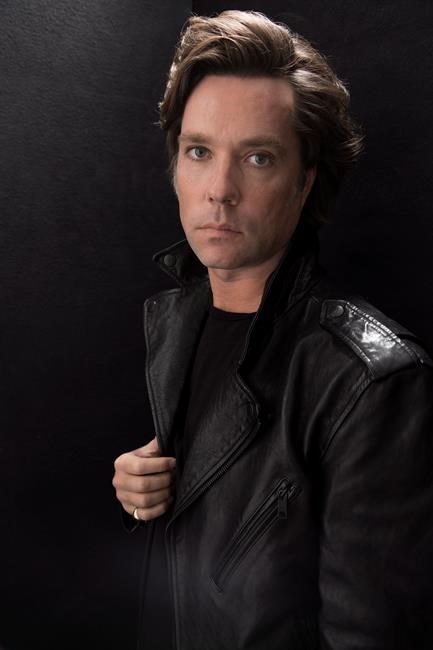
Rufus Wainwright is seen in this undated handout photo. The singer-songwriter is part of a star-studded BBC special arriving in Canadian theatres this week. "The Shakespeare Show: Recorded Live from the Royal Shakespeare Company" will be screened at select Cineplex cinemas on May 26 and June 5. THE CANADIAN PRESS/HO-Matthew Welch *MANDATORY CREDIT*
May 22, 2016 - 4:00 AM
TORONTO - Spring has been the season of Shakespeare for Rufus Wainwright.
The Canadian singer-songwriter has found himself immersed in the works of the Bard as part of commemorations of the 400th anniversary of the playwright's death.
Wainwright recently released the album "Take All My Loves: 9 Shakespeare Sonnets." The recordings feature guest vocalists including Florence Welch and Wainwright's sister, Martha, as well as spoken word performances from the likes of Helena Bonham Carter, Carrie Fisher and William Shatner.
Wainwright was also part of a star-studded BBC special arriving in Canadian theatres this week. "The Shakespeare Show: Recorded Live from the Royal Shakespeare Company" will be screened in select Cineplex cinemas on May 26 and June 5.
The special features a cross-section of musical, dance and dramatic performances, as well as a window into Shakespeare's own life. Award-winning stage and screen stars Helen Mirren, Judi Dench and Ian McKellen join Oscar nominee Benedict Cumberbatch among a host of talents honouring the dramatist.
Wainwright sings "When, In Disgrace With Fortune And Men's Eyes" (Sonnet 29), which he first performed for 2002's "When Love Speaks," a recorded collection of sonnets.
Reached in New York, Wainwright spoke with The Canadian Press about his earliest exposure to the Bard, and why he's so passionate about Shakespeare's works — particularly the poems.
The Canadian Press: What did it mean for you to be a part of the Shakespeare 400th celebration?
Rufus Wainwright: It was a great honour, and I feel tremendously privileged to be a part of that roster. I'm Canadian and American — I'm both — but I'm Canadian. And I think there was only one other North American performer, John Lithgow, who was part of the evening. Needless to say, the vast majority were English or Scottish or from that side of the pond, and so I felt privileged to be there as this sort of New World representative.
———
CP: What do you find so compelling about Shakespeare's sonnets?
Wainwright: All of Shakespeare is really compelling when you really boil it down. I mean, some of it goes on a bit, I suppose. But there are these little nuggets of wisdom and beauty and poetry and depth in so many of his works. I think what I love about both the poems and his plays is that they're just inexhaustible, you know? You never cease to be amazed.
———
CP: What was your first exposure to Shakespeare?
Wainwright: My earliest memory was going to see "A Midsummer Night's Dream" with my dad in London. He lived in London for about 10 years. It was just this amazing production where it was at Regent's Park at twilight. And I didn't really understand any of it to begin with. But then, as the sun was setting and fireflies were starting to appear, I mean, the whole thing made sense, and it was such a captivating, intoxicating experience.
———
CP: Was there anything else that stayed with you from that production?
Wainwright: I was about 11 years old, so it was hard for me to figure out what was going on. But then, all of a sudden, it made sense. And I even think to this day, a lot of Shakespeare plays and Shakespeare sonnets, it takes a while for it to sink in, and you have to kind of stick with it. That's kind of the beauty of it: that you're always guaranteed some kind of payoff.
———
CP: For your album, you have a diverse lineup of guest artists that are featured. I find it interesting that in addition to vocalists, you also have actors doing recitation like Shatner and Bonham Carter. Why did you want to integrate spoken word?
Wainwright: I just felt that because the various styles are so different — be it classical versus pop versus cabaret — the effect of having them read was a nice way to thread the whole project together. It was sort of like the glue to the concept. And also, you can hear the sonnets two or three times and they keep giving out meaning.
———
Note: This interview has been edited and condensed.
Follow @lauren_larose on Twitter.
News from © The Canadian Press, 2016